Bucket List
Zimbabwe
Bucket List Adventure
An exciting and immersive three week Bucket List Adventure Programme through Zimbabwe or Malawi, tailored for curious, spirited travellers over 30, ready to reconnect with nature, history, and community - without roughing it. This journey blends culture, conservation, comfort, and a deep dive into two of Africa’s most stunning and diverse countries.
Instructions
To make this component work with other components you must:
- Add a background color to the section div above ↑ this Timeline section. This is will help hide the progress line overflow.
- Add z-index-2 class to the section div above ↑ this Timeline section. This will ensure the oveflowing progress line from the Timeline section below ↓ is hidden underneath it.
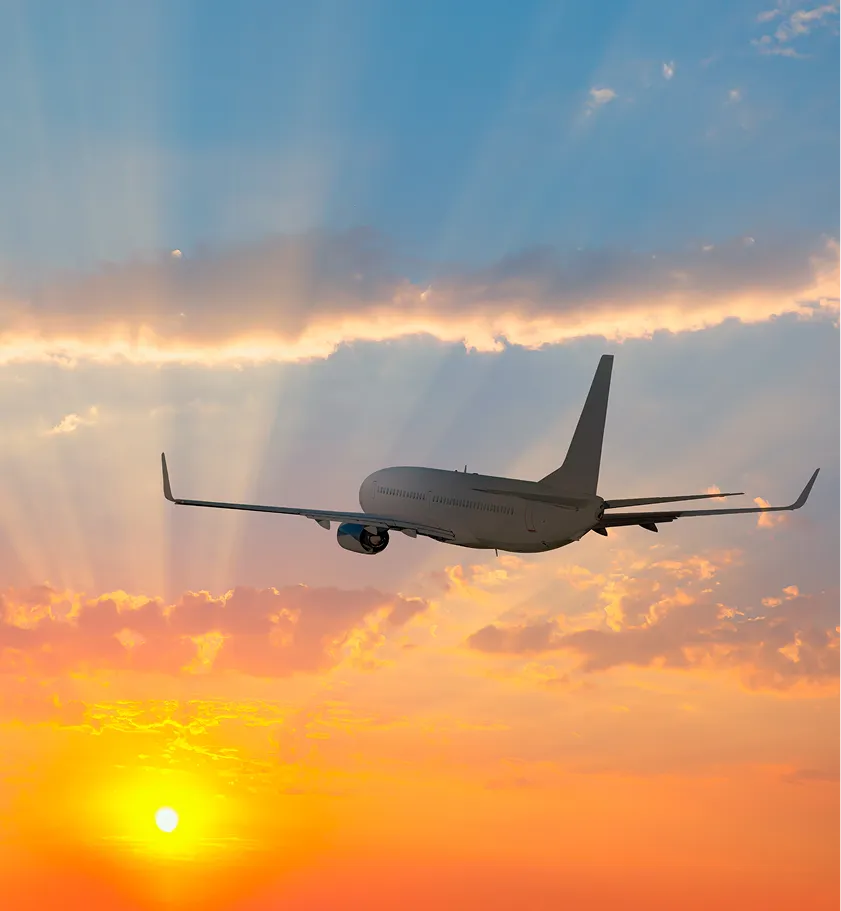
Day 1
Arrival in Harare
Touch down in Zimbabwe’s vibrant capital, Harare.
Warm welcome by your local guide and transfer to a charming small and stylish hotel.
Settle in, enjoy a refreshing sundowner, and meet your fellow travellers over a delicious welcome dinner.
Overnight: Boutique hotel in Harare
Day 2 - 4
Nyanga – Where the Sky Meets the Earth
Drive east into the magical Eastern Highlands, to Nyanga National Park - a land of waterfalls, rolling hills, and misty valleys.
Stay at the iconic, perched beside a glistening mountain lake.
Explore World’s View, where the sky seems endless and the panoramic views take your breath away. Hike the slopes of Mount Nyangani, Zimbabwe’s highest peak.
Try your hand at fly-fishing for trout in one of the pristine rivers or lakes.Visit ancient ruins.
Overnights: Troutbeck Resort, Nyanga (3 nights)

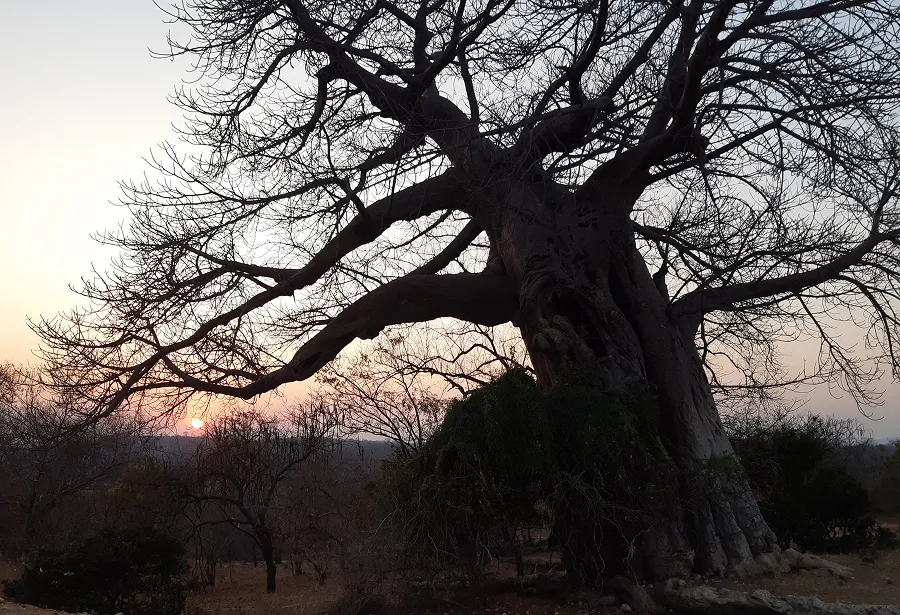
Days 5 - 6
Ancient Echoes at Great Zimbabwe
Journey south to the UNESCO World Heritage Site of Great Zimbabwe, the largest stone structure south of the Sahara.
Explore the iconic ruins - once a powerful kingdom - and feel the whispers of history among the towering granite walls.
Guided walk through the Great Enclosure, the Conical Tower, and the mysterious passageways.
Optional storytelling session with a local historian.
Overnights: Great Zimbabwe Hotel, or similar (2 nights)
Days 7 - 9
Matobo Magic – Sacred Rocks and Rhino Encounters
Travel west to the spiritual heartland of Matobo Hills, just outside Bulawayo.
Marvel at the balancing granite boulders and ancient rock art by San people.
Track rhinos on foot with expert rangers in Matobo National Park - one of the few places in Africa this is possible.
Visit Cecil John Rhodes’ grave, atop the aptly named “View of the World.”
Meet with local conservationists working on human-wildlife conflict mitigation.
Overnights: One of the beautiful lodges around Matobo (3 nights)
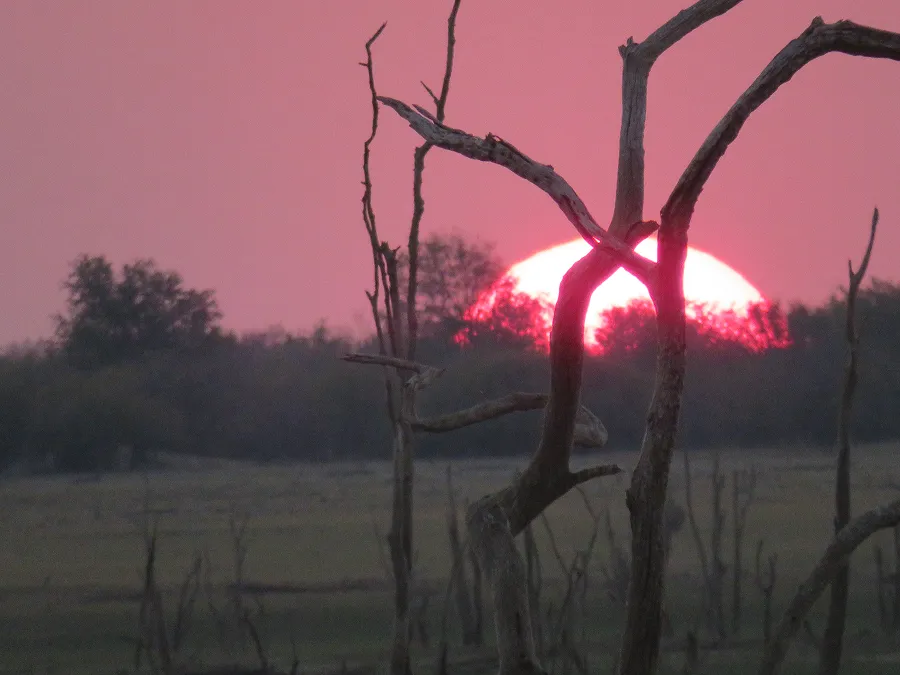
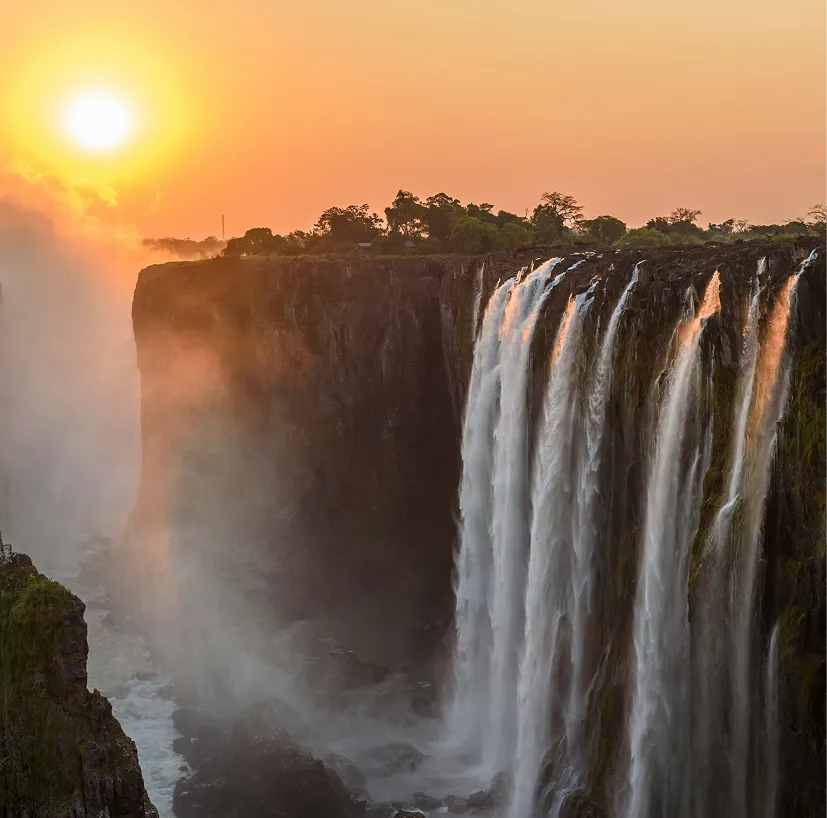
Days 10 - 12
The Wonder of Victoria Falls
Head north to Victoria Falls, the adrenaline capital of Southern Africa and home to “The Smoke That Thunders.”
Guided tour of the majestic Victoria Falls, where explorer David Livingstone declared he had seen “scenes so lovely they must have been gazed upon by angels in their flight.”
Take a sunset cruise on the Zambezi River, sipping G&Ts while elephants drink at the water’s edge
Optional adventures: bungee jumping, zip-lining, helicopter flights, or a safari in Zambezi National Park.
Explore the vibrant local markets and meet artisans.
Overnights: 528 Victoria Falls boutique hotel, or similar (3 nights)
Days 13 - 19
Lake Kariba – Soulful Safari & Conservation Immersion
Travel to the shores of Lake Kariba - by volume, the world’s largest man-made lake - framed by forested escarpments.
Stay at the warm and welcoming Warthogs Safari Camp, your base for exploration and learning.
Visit the Kariba Dam Wall and hear the tale of Nyami Nyami, the River God of the Zambezi.
Join expert guides in Matusadona National Park for immersive bush walks, animal tracking, and bird identification.
Learn about conservation and community projects, including hands-on involvement in human-wildlife conflict mitigation and bush survival skills.
Cruise along the shoreline by boat, fish for fierce tiger fish, and soak up Africa’s most spectacular sunsets.
Overnights: Warthogs Safari Camp, Kariba (7 nights)
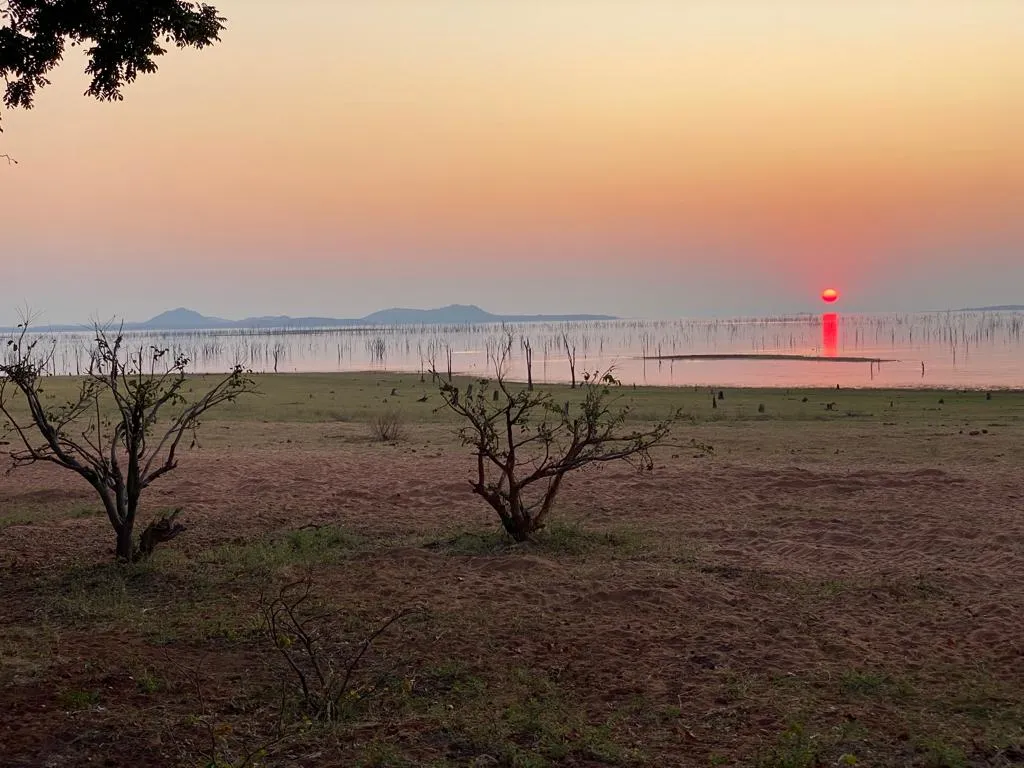

Day 20 - 21
Return to Harare – Farewell and Reflection
Scenic drive back to Harare.
Enjoy a relaxed afternoon and a final farewell dinner to toast new friendships, wild memories, and the spirit of Zimbabwe.
Overnight: Boutique hotel, Harare
Transfer to the airport for your flight back to the UK.
Ready to Start Your adventure?
Enquire NowWhat Makes This Experience Wildly Unforgettable?
👉 Regular wildlife encounters with Africa’s iconic animals
👉 Real-life conservation, leadership & survival skills
👉 Deep cultural immersion and community connection
👉 Raw, unplugged African bush adventure
Find answers to all your burning questions, here.
Which medicines should I bring or have on hand?
Check with your local GP which immunisations you may need to have, or update, for both Zimbabwe and Malawi. e.g. Yellow fever, typhoid, hepatitis A, rabies, and others. Anti-malarial medications are essential - malaria is present across Zimbabwe and Malawi. Bilharzia (schistosomiasis) is a risk near freshwater (lakes, rivers). Recommended medications should be taken as prescribed before and after freshwater exposure. All providers emphasise the importance of comprehensive travel health insurance and carrying a well-stocked first-aid kit.
Which airlines fly from the UK?
To Zimbabwe: Common routes via Emirates (via Dubai), Qatar Airways (via Doha), Ethiopian Airlines (via Addis Ababa) and Kenya Airways (via Nairobi). Connections sometimes go through Johannesburg. From Malawi: Airlines servicing Blantyre or Lilongwe include Kenya Airways, Ethiopian Airlines, KLM and United (via Europe/Africa hubs).
Are there health concerns I should be aware of?
Yes, travellers should be aware of: Malaria risk in many parts of the country—anti-malarial medication is recommended. Yellow fever vaccination is required if you're arriving from a yellow fever zone. Always drink bottled or purified water.
Can I drink the tap water?
It is recommended to drink bottled or filtered water in Zimbabwe.
Are there COVID-19 or travel restrictions?
Regulations change often. Check with your airline and the official Zimbabwean government or health department websites for current travel and health guidelines.
Can I use my mobile phone in Zimbabwe?
Yes, with an international roaming plan, but it can be expensive. Buying a local SIM card (e.g., from Econet or NetOne) is a more affordable option for data and calls.
What should I pack for a trip to Zimbabwe?
Essentials include: Lightweight, neutral-coloured clothing Warm layers for cool mornings and evenings Sun protection (hat, sunscreen) Insect repellent Comfortable walking shoes Binoculars for wildlife viewing
Can I use credit or debit cards in Zimbabwe?
Card acceptance is limited, especially outside cities. Always carry enough cash, especially for smaller establishments or remote areas.
Do I need a visa to enter Zimbabwe?
Yes, most travellers require a visa to enter Zimbabwe. Visas can be obtained at the airport, border post, or online through the eVisa system. Requirements vary depending on your nationality, so check with the Zimbabwean embassy or immigration website beforehand. Travel Documents: Passports should be valid for at least six months from your arrival date
What is the best time to visit Zimbabwe?
The best time to visit is during the dry season, from April to September, especially for wildlife viewing and visiting Victoria Falls when the water levels are moderate and visibility is best.
What currency is used in Zimbabwe?
Zimbabwe uses a multi-currency system. The most commonly accepted currencies are US Dollars (USD) and South African Rand (ZAR). It's advisable to carry small denominations of USD in cash.
Is tipping customary in Zimbabwe?
Yes. Tipping is appreciated but not mandatory. A general guideline is: 10% in restaurants $5–$10 per day for guides $1–$2 per bag for porters
Is there anything else I should know?
Malawi is a friendly, welcoming country. Patience is helpful—things may move at “Africa time.” Take time to engage with locals and enjoy the slow, warm pace of life.
How can I support local communities responsibly?
Buy local crafts and produce. (Do not purchase any wooden made items that may be prohibited on flying out of the country). Support community-led tourism initiatives. Avoid giving sweets or money directly to children; support schools or community projects instead.
What cultural etiquette should I know?
Modest clothing is appreciated, especially in rural areas. Greetings are important; a handshake is customary. Always ask permission before taking photos of people.
Is Lake Malawi safe for swimming?
Yes, but take precautions: Be aware of bilharzia (schistosomiasis) risk—avoid swimming near stagnant or weedy areas, and consider testing/treatment if you swim extensively. Always check local safety and current advice.
Can I drink the tap water?
It is recommended to drink bottled or filtered water in Malawi.
What should I pack for my trip?
Lightweight, breathable clothing for warm days. A light sweater for cool evenings. Good walking shoes, a hat, sunscreen, and insect repellent. A reusable water bottle. A rain jacket if travelling in the rainy season.
What language is spoken in Malawi?
English is the official language, widely spoken in cities and tourism sectors. Chichewa is the national language, and locals appreciate learning greetings like: Moni! (Hello) Zikomo! (Thank you)
Is it easy to get a SIM card / internet access?
Yes, SIM cards are easily available (TNM, Airtel). Data packages are affordable, but coverage can be patchy in remote areas.
What currency is used, and can I use cards?
The Malawi Kwacha (MWK) is the local currency. US Dollars are sometimes accepted for tours/accommodation. Credit cards are accepted in some lodges and hotels, but cash is essential in many areas.
Is Malawi safe for travellers?
Malawi is known as the “Warm Heart of Africa” and is generally safe. Exercise standard travel caution: Keep valuables secure. Avoid walking alone at night in cities. Respect local customs.
What vaccinations do I need?
Yellow Fever: Required if coming from a Yellow Fever zone. Recommended: Hepatitis A & B, Typhoid, Tetanus. Malaria: Malawi is a malaria zone, so anti-malarial medication and mosquito precautions are essential. For taking part in any lake based activities, we suggest purchasing bilharzia medication.
Do I need a visa to visit Malawi?
Most visitors do not need a visa. Check the Malawi Immigration website before travel. Travel Documents: Passports should be valid for at least six months from your arrival date.
What Makes This Experience Wildly Unforgettable?
Regular wildlife encounters with Africa’s iconic animals Real-life conservation, leadership & survival skills Deep cultural immersion and community connection Raw, unplugged African bush adventure
Why Choose This Adventure?
This is not a tour – it’s a full-blown African experience. You’ll gain: Lifelong friendships Hard skills in conservation, community work, and survival Soft skills in leadership, communication & resilience A real sense of purpose and contribution
How long is the programme?
The standard youth programme is eight weeks long. A typical eight week programme includes: 1-2 weeks orientation, 5-6 weeks of project work, then 1-2 weeks down tim
Is a pre-departure briefing offered?
Yes, we will have individual conversations with each person - covering practical travel safety, medical kit essentials, cultural awareness, and risk management. In-country orientation: At the start of programmes, expect briefings on local culture, language (basic Shona in Zimbabwe and Chichewa in Malawi), project details, and Health & Safety protocols.
Any Questions?
.webp)
